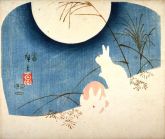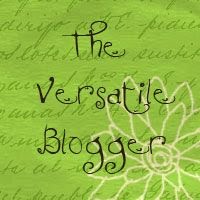 A while ago I listened to an interview with the British primatologist Jane Goodall. She talked about her life in Tanzania, observing and researching the behaviour of chimpanzees. Among others, one of her ground-breaking discoveries was the existence of emotions like anger, fear, rage, love or kindness in primates. She was able to show that chimpanzees went through a process of individualisation similar to that of a human being and that the connection between perceiving and feeling enabled the development of an individual personality. In this interview, she also talked about jealousy, which she had often observed in the chimps, and on the occasion she also mentioned that both of her husbands, were very jealous of her and she wondered what it was, that made her encounter this situation repeatedly.
A while ago I listened to an interview with the British primatologist Jane Goodall. She talked about her life in Tanzania, observing and researching the behaviour of chimpanzees. Among others, one of her ground-breaking discoveries was the existence of emotions like anger, fear, rage, love or kindness in primates. She was able to show that chimpanzees went through a process of individualisation similar to that of a human being and that the connection between perceiving and feeling enabled the development of an individual personality. In this interview, she also talked about jealousy, which she had often observed in the chimps, and on the occasion she also mentioned that both of her husbands, were very jealous of her and she wondered what it was, that made her encounter this situation repeatedly.
This story stayed to me for a while and I started to enquire about the subject of jealousy.
Jealousy is a mixed bag in the truest sense of the word. It is a secondary emotion, which means it is less instinctual and more cognitive, mostly based on a previous experience of real, or perceived traumatic loss. Jealousy is not a homogenous emotion, as it is a highly individual combination of fear, insecurity and anger. Jealousy can have many faces and many possibilities of expression – from a nagging feeling to rage, from withdrawal and grief to aggression. But there seems to be the common denominator in all of this – insecurity and a fear of loss.
This suggests a close proximity between jealousy and the desire to protect. Basically this is what Jane Goodall said about both of her husbands – that in the beginning they were both very protective about her and she liked it. Of course, she lived right in the middle of the wilderness, among a herd of primates and there were many dangers and it was certainly a challenging place to have a family and raise a child. So the desire to protect – as well as welcoming the increased sense of security that goes with it- seems to be a reasonable attitude. But what is it that turns the sense of wanting to protect a loved one from harms way, to obstructing their ways, in terms of jealously watching over them.
The difference seems to be the creeping fear of loss and the related insecurity of being able to keep the status quo in terms of an intimate relationship. In the beginning of a love relationship, there is closeness, intimacy and the unconditional acceptance of the other. Later, a sense of separation is slowly creeping in, as this openness meets the first frustrations of disappointed expectations and incompatibilities in personalities. Jealousy also has been said to have a cultural aspect, and that may influence the respective manifestation and behavioral expression. Also there seems to be a close relation between jealousy and envy.
This makes me think of the archetypal pattern of the saboteur – an energy in all of us, that drives our choices based on what needs to happen to guarantee basic survival, but is fuelled by a fear of change. It seems to be quite logical that a obstructive emotion like jealousy would be influenced by this archetypal egoic pattern that wants to prevent change from happening.
We just need to look how ego is being formed. The main interest of the ego is physical survival and to dwell in an atmosphere of security. Only the known feels like a safe option to the ego – anything new, any change from the status quo is considered an impending threat. Fear is what keeps us within the boundaries of the known and it provides a false sense of security, because it strengthens the illusion of everything staying the same and nothing changing. This is how we separate from what is.
And so we can understand how the emotion of jealousy may be taking form. If there is an inner insecurity, low self esteem or even the a sense of not being enough, it will call upon the energy of the saboteur to influence the choices in terms of staying with a status quo and resisting change. All life is constantly changing, so anyone wanting to hold on to any situation, will eventually find out that it is useless trying to control the environment. The behaviour that goes along with jealousy is the attempt to control. It is an expression of that fear of change, of wanting to hold back, to impose one’s will on another person, to dominate. Jealousy is an emotion of keeping someone separate, at distance – with the expectation that the lack of exposure may preserve the status quo.
The energy of the saboteur is about choice and as jealousy is a higher organised emotion with elements of cognition and behaviour, it may be important to become aware of the choices one is making and what is driving them. It may be necessary to enquire deep into any sense of jealousy in our life and discover what is at the root of it – a sense of not being enough.
Jealousy and its many expressions may be a very valuable entry point into the art of letting go. It may be necessary to become aware of the different aspects of the emotion – what triggers it (what is the situation and the thought associated with it), what is the reaction and what is the felt sense of it. Jealousy sits in the pit of the stomach – the seat of the ego, and it may very quickly engage the emotion of anger to overcome the sense of being threatened to lose out.
It is important to really go into this emotion, feel it, sit with it and allow it to express its endeavour – what is it that it wants to protect and what would happen, if I explored that fear deeply. Behind all that anger and fear of jealousy may be a strong sense of grief, a sense of loss or separation, caused by real or perceived traumatic events. But what it is indicative of is an even greater sense of loss – the loss of a sense of completness which is the basis for all our striving.
I do not know why Jane Goodall had to put up with two jealous husbands. Who ever has observed her being so completely present doing her work observing the behaviour of animals, may come up with the impression, that there was not much she wanted, or needed in terms of being happy. There is a certain independence about her, not aloof or remote, but the air of someone who knows how to love in the true sense of the word. As one is always conditioning the other, maybe this was at the basis of the relationship – the insecure looking for the secure and vice versa. As the outer is always an expression of the inside, the impulse of the insecure is to protect others, as the impulse of the one resting in herself would look for an equal, combining strengths. This is of course speculation, but as I watched Jane Goodall it appeared to me that she does not know fear – certainly not fear of change.
Article about Jane Goodall















Long and thoughtful article Michaela. I agree it is a composite emotion.
However, I dont understand the link between the desire to protect and jealousy.
Also I feel there is a whole lot of intermixing of “possessiveness” and “jealousy”. One of these may lead to the other but most of the later part of your article points to possessiveness. This can arise even in the absence of jealousy.
Jealousy, in my experience, is simply wanting to have what the other person has. It doesn’t matter if I already had that or could easily acquire that (thing, information, talent, etc etc).
You can see I know quite a bit about it 😉
Thanks for the essay
Giri
Hi Giri,
what I was trying to get to was the development of a “negative” emotion out of an instinct. I was latching on Jane Goodall’s story, so this is why it turned out that way. But I think this is true: In the beginning I may have a genuine desire to take care of someone and “protect” them for their physical and emotional wellbeing, regardless of what they do or appear to be doing. Later, when ego comes in and the delusion starts to destroy the perfect picture I may have of myself in relation to another, I may feel “jealous” of anything or anyone that takes the attention away. Possessiveness is the result of it.
Jealousy and envy are related. If I want to have what someone else has – it may be envy, based on the energy of thinking ” If I had that, I would feel better”. Jealousy to me feels more like” If you turn away from me, I don’t feel good”
I don’t know so much about it either… just “feeling it up” as I go.
Thanks for stopping by
Michaela
Firstly, I just love the picture! It seems to be an expression of essence – of what, I don’t know. So delicate, so barely there, yet look at that tree! The other thing that struck me is about the development of emotions, feelings, personality, in chimpanzees. When we talk of “others”, we think of other human beings, yet here are these beings, and I’m sure chimps aren’t the only ones – that apparently go through an emotional maturation process, similar to us. Perhaps we could expand our explorations to dolphins, whales and lots of other species…
As to jealousy, I think it is quite distinct from envy – jealousy is related to possessiveness, as in “the jealous husband (or wife)”, the one who cannot tolerate others getting the attention or care of the one they “guard” so jealously. In the case of Jane Goodall, I wonder if the husbands became jealous because she was so devoted to the chimps? (So maybe some emvy of the chimps comes in there?) I remember after my first baby, my husband felt very put-out when I had my arm around him in bed, and I said: “my baby”, thinking, in my sleepy state that I was holding the baby. This kind of reaction seems to be not so uncommon – almost a sense of being displaced in the woman’s affection, by the baby. So, yes, both posessiveness and insecurity seem to be present here. So, when it happens – let’s meet it with courage and compassion!
Hi Johanna,
glad you like the print. It is of Ando Hiroshige, the master of Japanese wood-prints. I love his work (see: http://en.wikipedia.org/wiki/Hiroshige)
Yes, I too think jealousy and envy are different. Thank you for your comments, emotions to me are fascinating – and wonderful pointers to what is true.
Thank you for your insightful article.
Jealousy involves a third party, whether real or imagined and is personal. It is absolutely possible that her partners were jealous of her time with the apes. It puts them (the husbands) at a disadvantage, a possible loss to something else. There is a loss of position there whether real or imagined. (Ben-Ze’Ev: The Business of Emotions).
Envy involves only two parties and has an impersonal component to it.
You make an excellent point in your last paragraph and when you mention that sometimes, women feel flattered by overprotectiveness at first. We wonder why she put up with it. From experience, I think that as a person who has seldom if ever felt real jealousy in my life, I never anticipated it in my husband. I never anticipated such a thing would ever arise. The times we have talked about it he has mentioned his own feelings of insecurity and that really, nothing that I had done had brought it about. Fear of loss of our partnership was something he had obviously contemplated a lot. So perhaps Jane in her secure self, never anticipated it would be a problem.
Hi Lorelei,
yes, I have a sense that is the truth.
It is like life presents both partners with an experience of something they would not know by yourself.
A learning opportunity. I am convinced that sub-consciously we are looking for that to develop.